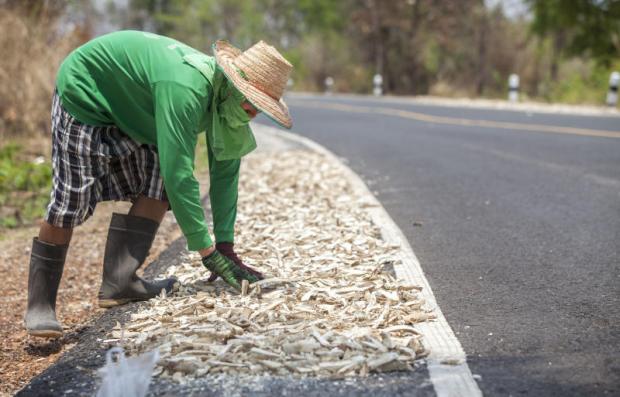
The Board of Investment (BoI) has approved in principle the promotion of Thailand as a bio-economy hub to increase farmer income, in line with the government's policy to reduce income inequality and develop new S-curve industries.
The BoI is required to include community businesses, farmers and agricultural cooperatives in promotional packages to generate more income, said Deputy Prime Minister Somkid Jatusripitak after a meeting chaired by the prime minister.
"The package to promote Thailand as a bio-economy hub not only gives large companies an opportunity but also supports community businesses and agricultural cooperatives," he said.
Mr Somkid said the government wants to use the BoI as a tool to reduce income disparity.
The bio-economy hub policy aims to add value to farm products by using innovation, raising revenue for farmers, and promoting circular economy and green economy concepts, he said.
The cabinet earlier approved the country's first bio-economy development plan.
The bio-economy plan has five sectors -- bio-energy, bio-chemicals, food, animal feed and bio-pharmaceuticals.
Duangjai Asawachintachit, secretary-general of the BoI, said the board is required to propose the incentive package at the next meeting in March.
Initially, investors are expected to enjoy an eight-year corporate tax exemption and additional corporate tax privileges after the tax holiday, depending on their investment in R&D and assistance measures to farmers.
The package is also aimed at creating inclusive growth, given that it will draw large companies to help community businesses and farmers through training and support investment to agricultural cooperatives.
"The measure is expected to develop bio-economy clusters nationwide. For example, northern provinces may use fruit as raw materials, the Northeast could use sugar cane and tapioca, while southern provinces could use palm and rubber," she said.
The BoI recently approved measures to promote oil refiners accelerating upgrades to meet Euro 5 emission standards for cars, in an effort to reduce emissions as PM2.5 dust envelops Bangkok and surrounding provinces.
Two refining companies -- Thai Oil Plc and Bangchak Corporation -- have upgraded oil refining facilities to meet Euro 5 emission standards, while the remaining four plan to upgrade during 2023-24.
The four refineries produce Euro 4 fuels.
"The government aims to encourage the four refineries to accelerate their Euro 5 upgrades," Ms Duangjai said.
The four are estimated to spend a combined 35 billion baht for the upgrade.
The refineries are required to submit their applications by Dec 31 to enjoy an exemption of import duties on machinery.
The board also approved investment incentives for five projects worth 40 billion baht, including Thai Airways International's joint venture aircraft maintenance facility valued at 6.46 billion.
AW Thailand's automatic transmission manufacturing project worth 7.2 billion baht and General Rubber Thailand's 9.27-billion-baht plant to produce vehicle tyres made from natural rubbers were also granted incentives.
Xunning Ju received incentives to manufacture tyres for vehicles worth 10.06 billion baht, and Thai Lion Mentari was approved for its 6.9-billion-baht air cargo business.